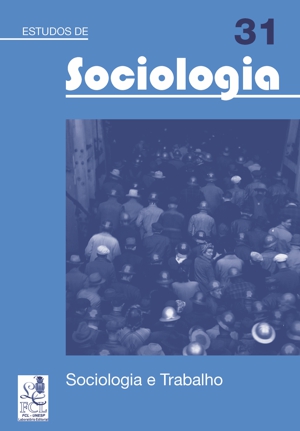Contemporary unionism between typologies and forms of action
Keywords:
Unionism, Typologies, Practical challengesAbstract
After recalling the ways in which trade unionism can be seen as an object of study (part of a social movement, institution of the labor market, interest group), this text seeks to recover some of typologies that over the past decades have guided contemporary unionism and apply to different geographical and political contexts (although the Portuguese case, and partly the Brazilian one, is privileged). These typologies – such as opposition/integration/control, negotiation/conflict or social movement unionism – are important to understand the directions (sometimes opposing, sometimes complementary) to guide the union activity. At the same time, it is argued that the present and the future of trade unionism are mainly dependent on the ability to respond to a set of very pragmatic questions: people still trust on unions? There are signs of trade unions renewal so that we can trust on unions? What are the real influences that trade unions have on society?Downloads
Download data is not yet available.
Downloads
How to Cite
COSTA, H. A. Contemporary unionism between typologies and forms of action. Estudos de Sociologia, Araraquara, v. 16, n. 31, 2011. Disponível em: https://periodicos.fclar.unesp.br/estudos/article/view/4515. Acesso em: 2 feb. 2026.
Issue
Section
Articles
License

À revista Estudos de Sociologia ficam reservados os direitos autorais pertinentes a todos os artigos nela publicados.
Os artigos publicados e as referências citadas na revista Estudos de Sociologia são de inteira responsabilidade de seus autores.
A Estudos de Socilogia utiliza a licença https://creativecommons.org/licenses/by/4.0/ (CC BY), que permite o compartilhamento do artigo com o reconhecimento da autoria.



